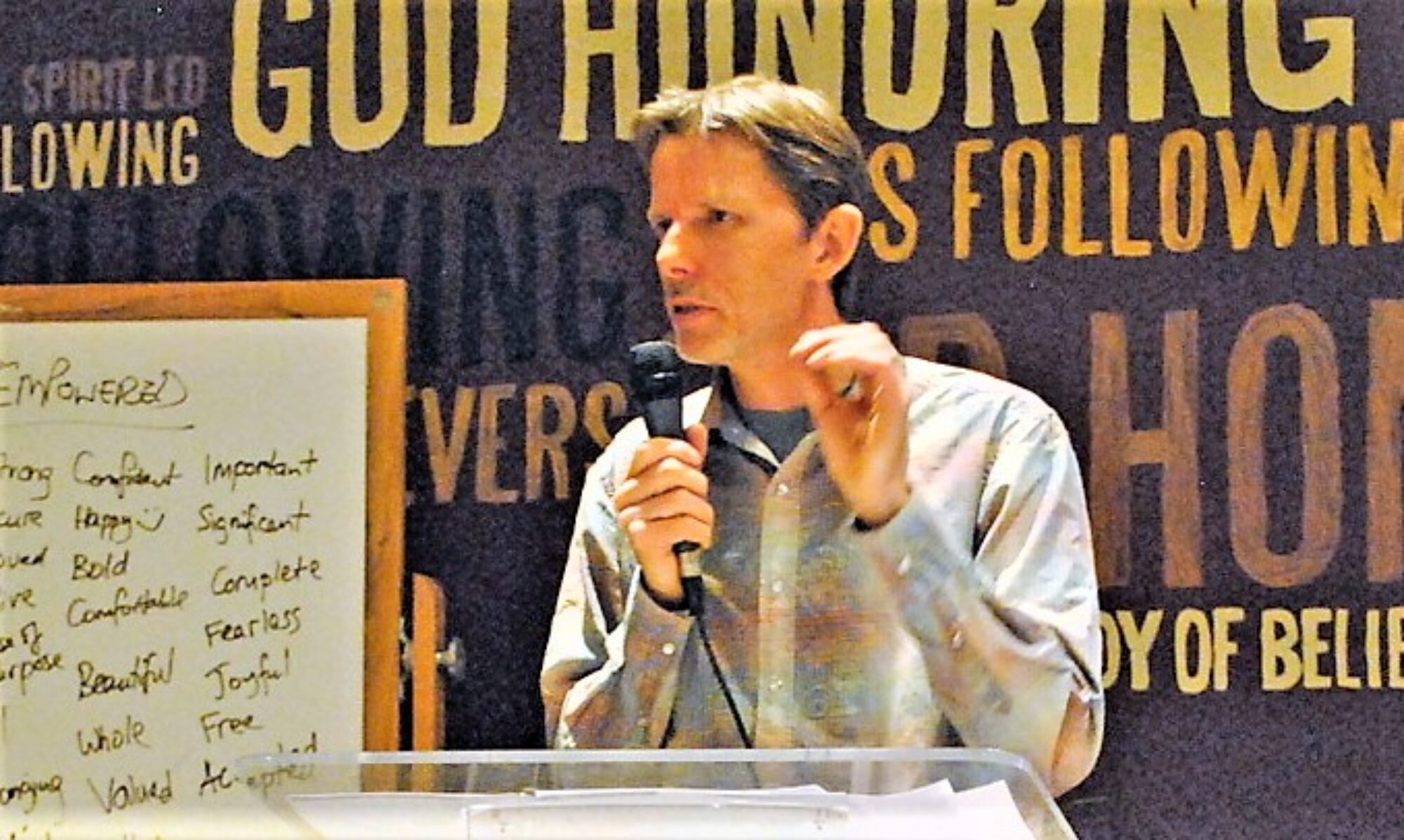Growing up ‘in church’ I had very little exposure to eschatology – teaching on the end times and what God is going to do. Maybe this topic was avoided because Christians hold to different interpretations and it is therefore a potentially contentious subject.
Two Very Different Perspectives
Through my own studies I was exposed to the two ends of the theological spectrum. I had a large book which was a doctrinal study by the Pentecostal preacher, Finis Dake, called God’s Plan for Man. This was based on a theological viewpoint known as Premillennial Dispensationalism.
Dake also published his own annotated reference edition Bible which became very influential in North America. Along with the Schofield Reference Bible, it caused this teaching to be embraced widely, especially within Pentecostal/charismatic circles.
Further exposure to different American preachers solidified this view. It emphasised the importance of the natural state of Israel and a coming rapture of Christians prior to a seven-year ‘Great Tribulation’ for those ‘left behind’.1
God’s Kingdom Postponed or Already Here?
However, as I entered my twenties I came across an entirely different perspective which doesn’t distinguish between two separate programmes for ethnic Israel and the Church. Instead, it understands that rather than postponing God’s kingdom until sometime in the future, Jesus has already inaugurated it through his death and resurrection.
God’s kingdom has therefore already arrived on planet Earth! And his people have been commissioned to continue the work he started and build towards the day when Heaven and Earth will finally come together in a renewed state.
As someone who has been engaged in full-time missionary work for over 25 years, the nature of God’s mission in the world has been a primary focus. My understanding has developed over the years. For a long time I paid little attention to eschatological teaching. I felt it was a distraction to what we as Jesus followers’ should be doing based on his first coming!
Why Our Eschatology is Very Important
However, one thing I have come to understand more recently is that our eschatology shapes our engagement in mission. For this reason, our eschatology is very important. Allow me to explain.
What I mean by this is that what you believe God is going to do in the future will shape the way you do mission.
Saving Souls Not Anything Else
If you believe God is going to destroy and discard the Earth and the rest of his creation, and evacuate his people to another place called Heaven where we will spend eternity, then our mission will be about rescuing as many souls as possible from ‘a sinking Titanic’. Why waste your time planting a tree, conserving the environment, saving endangered species, reforming education, or building something generationally if this whole world has no future?
Alternatively, you may believe from the scriptures that God is actually going to renew the physical world he has created. In other words, through Jesus’ death and resurrection, God’s kingdom has arrived on planet Earth and he is coming to set the world to rights. In the meantime, he has commissioned his people to begin this process. By teaching and discipling nations, and bringing about God’s will and intentions on Earth, as it is in Heaven.
When it comes to mission engagement, one view is principally focused on saving souls for another immaterial place we call ‘Heaven’. Such evangelistic efforts and helping the poor and needy are both very important activities. However, other pursuits are viewed as having a lesser, earthly and temporal value, as we wait for Jesus’ anticipated return to take us out of this fallen and messed up world.
Such a dualistic mindset assumes nothing can really be done to change the way things are. There isn’t much point trying. This world is going to be destroyed anyway. We just have to do the true work of the gospel and wait for Jesus to take us out of this mess. It typically results in some form of ‘end times paralysis’.
Engaging in a Worldwide Restoration Project
The other view recognises that God is still interested in the whole of his creation. That he isn’t about to destroy and discard it, in favour of another place called Heaven. Jesus came to save not only humanity but also to redeem, restore and reconcile everything! (Col. 1:19-20). It was a cosmic plan, a worldwide restoration project where everything is impacted.
When we have a victorious kingdom eschatology where Jesus is already King and the kingdom is already ‘in session’, everything we do can have kingdom and eternal value.
If we, for example, plant a tree, campaign for justice, create a song, a piece of artwork or a good, wholesome movie, impart a truth, extend love and care towards others, or make some other positive contribution to society, then our labour is not in vain but will contribute to God’s new world.
Yes, the final putting the world to rights will take place when the King returns, but in the meantime he expects us to employ what he has given us to expand his kingdom throughout every area of life.
Paralysed or Empowered, Restricted or Expanded?
We will not be paralysed into inaction by the seemingly growing darkness and expectancy that everything is just going to get much worse before ‘the end’. As important as leading people to follow Christ is, we will not limited to this alone. But we will be empowered to spread and advance God’s victorious kingdom gospel in whatever way he leads us, employing the gifts and passions that are inside us.
So how does your eschatology affect your mission engagement?
1 Dispensationalism was a teaching and theological system started by J.N. Darby in the 1800s. It divides God’s dealings with humanity from the beginning of time into 7 dispensations and interprets all biblical prophecy literally. We are allegedly in the sixth dispensation of ‘Grace’ which will be followed by the ‘Kingdom Dispensation’ (or the millennial reign of Christ). In this sixth dispensation called ‘Grace’ (the current church age), God is working out simultaneously two separate plans with two distinct people – Israel and the Church. The kingdom that Jesus announced has been postponed due to Israel’s rejection of their Lord but will begin after the Rapture of the Church and the Great Tribulation, when Israel will accept their Messiah and Jesus will sit on a physical throne in a new temple in Jerusalem and reign for 1,000 years. The distinction between Israel and the Church is maintained throughout eternity with Israel enjoying an earthly kingdom and the church a mysterious heavenly programme. Dispensationalists typically endorse the modern state of Israel and interpret political events as an outworking of God’s will for the Last Days.
(Photo by Louis Hansel on Unsplash)


